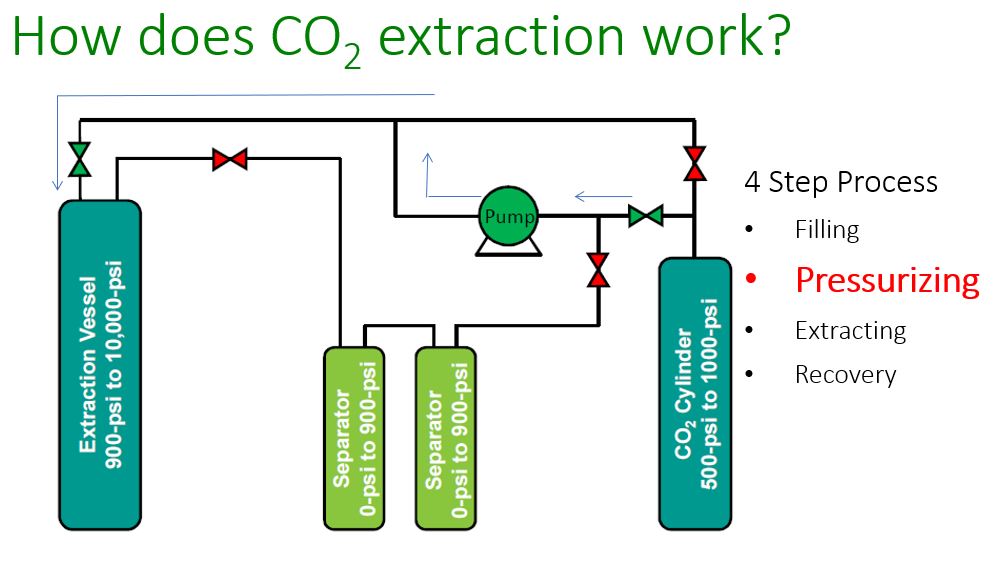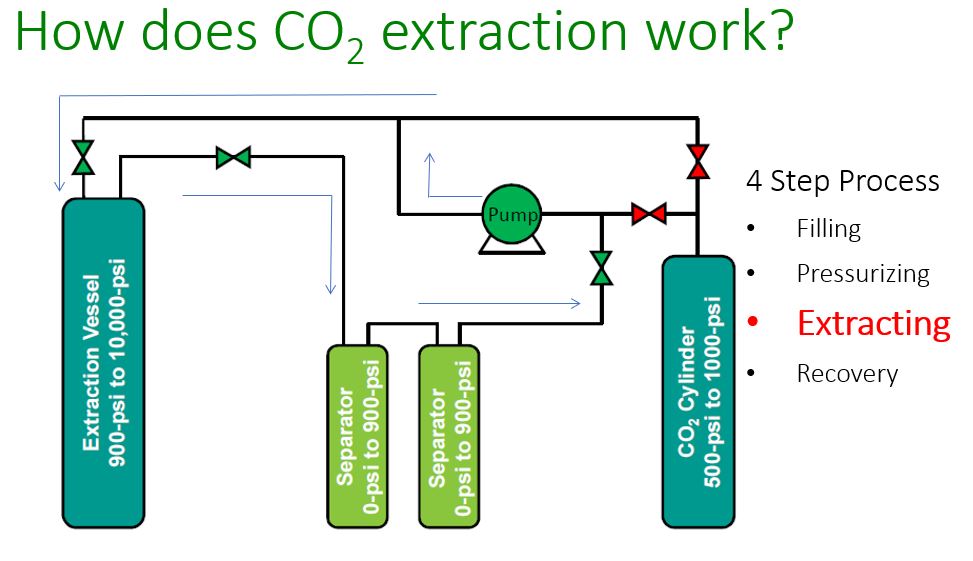What is Hemp Extract & What are the Benefits
Everyone is talking about hemp, hemp extracts, CBD, and the perceived health benefits of it. There is very little scientific research to support claims, but users are reporting very positive results. If you’re not sure what hemp extracts are, keep reading!
What is Hemp?
The hemp plant is closely related to the cannabis plant. They are from the same genus of plant species and are often confused with each other. Very simply, cannabis contains higher levels of THC (tetrahydrocannabinol), while hemp has higher levels of CBD (cannabidiol). THC is what gets people high, while CBD has no properties to make users high. Of course, there are several other differences between each plant, but we’ll just keep it simple here. According to United States law, hemp is not allowed to have more than 0.3% THC in it.
As a plant, hemp has a myriad of uses, from paper, to building materials, to soaps, lotions, and balms. Hemp clothing is becoming more and more popular since it gets softer with each wash! However, in this article, we’ll stick to hemp extracts and their benefits.
What is Hemp Oil vs. Hemp Seed Oil?
Hemp oil is typically (not always) the oil derived from the entire plant – leaves, buds, stems. Hemp seed oil is the oil pulled from the hemp seeds and typically has a lower CBD content than the buds. It does offer health benefits though and is certainly worthwhile adding to your morning breakfast cereal or eggs!
The Benefits of Hemp Oil
Very little formal research has been done on the hemp plant and its properties, but what has been done shows promising results, showing all kinds of benefits, cosmetically as well as from a health standpoint. Many people use CBD as an alternative to over the counter medications that are manufactured, and therefore considered unnatural. Since CBD is plant-derived, it has a reputation as being healthier because it’s natural. However, as with anything, the source should be considered – a plant contaminated with pesticides is going to be more harmful to the consumer than an over the counter medication that has gone through rigorous testing and is categorically safe for the consumer. Once the industry is better regulated, CBD products will undergo the same rigorous testing, so consumers can rest easy, knowing they are not ingesting contaminants, either from the plant or from the extraction process.
Pain relief: People use CBD/hemp oil for pain relief, but all the studies have been on mice so far. More human testing will back up the findings and results won’t be available for a while. In the meantime, however, people do use CBD oil to reduce pain caused by inflammation.
Muscle pain/tension: CBD has also shown interesting results and has helped some people with muscle strains. It’s tied into the anti-inflammatory properties of the plant.
Skin problems: CBD is also used for treating acne. A scientific study has been done and the results are very promising. Click here to read the full study. This sort of study is what’s needed across the board to lend credibility to claims made.
Clearer thinking: Some people claim that CBD helps them focus and concentrate better.
Insomnia: Limited studies have shown that it helps promote a deeper, more relaxing sleep.
CO2 Extracted Oil
Most hemp farmers send their feedstock to a processor, who will extract the oil from the plant, package it and sell it as CBD oil. The oil is extracted using a solvent – for hemp, it’s usually ethanol because it’s a very quick method of extraction. However, more people are turning to CO2 because of its tunability and its reputation as a clean method of extraction. What’s not considered is tFhat ethanol is still introduced at the post processing stage and must be removed before being sold to customers. Provided the ethanol used is food grade, trace amounts are not harmful to the end user.
The plant material is fully dried before being ground up and placed into an extraction system. The solvent then flows over it and extracts the oil. The solvent is under high pressure and temperature, which converts it into a powerful solvent – it’s not quite liquid and it’s not quite gas. It’s sort of a milky, hazy substance. This is CO2 at the supercritical stage. Once the solvent has passed through the feedstock, it moves into the next chamber, called the extraction vessel, and depressurizes. In doing so, the solvent stream changes back to a gas, dropping the oil from the stream, where it falls down the extraction chamber, and into a collection cup. The solvent stream continues through the system and through the plant stock, over and over, in a closed loop, until the run is over.








The extracted oil is a crude oil, and this is where ethanol is added. To refine the oil (remove the fats, waxes, lipids) it needs to go through a filtration system. Ethanol is added, the combined mixture is fully homogenized (mixed), then placed into a deep freezer overnight. The next day (or later), the mixture is passed through a filter into a flask, sometimes more than once, and this process removes the unwanted compounds that were pulled along with the oil. Once that has all been removed, the ethanol needs to be removed and this is done using a rotary evaporator. The oil/ethanol mixture is placed into a flask, which is lowered into a warm bath. The flask is set to rotate, and as it warms up, the ethanol boils away, into a condenser coil, which then drops into a small collection flask. When the mixture begins this process, the ethanol is not visible, but as it condenses and collects in the flask, it’s as if it was never used – it’s as clear as it was when it started, and it can even be reused.
On the left is the rotary evaporator in action and on the right, the recovered ethanol




Why does CBD seem to work?
Our bodies have an endocannabinoid system with receptors that adhere to the cannabinoids in cannabis and hemp. That means the plant compounds are not rejected and is also why people test positive for THC weeks after ingesting the product. The health benefits are still being explored and further scientific testing needs to be conducted before the claims made can be verified.
Summary
It must be said that most studies done so far have been on mice. There are very limited human studies and until that is complete (or at least underway with preliminary results available), no health claims can officially be made. However, it’s a Catch-22 situation: the federal status of the plant (cannabis, not hemp) causes problems with university research. If universities go ahead, they risk losing government grants, so institutes steer clear and no research is done. Despite being included on the Farm Bill and effectively cleared legally, hemp farmers and processors still face legal problems. Once the plant is federally legalized, it will be regulated, which will benefit everyone, but most importantly – it will benefit the consumer.
Download a price list today!
COntact Us
Got questions? We have answers.
For more information about our Apeks Supercritical systems please fill out the contact form below and we will respond to you shortly.

